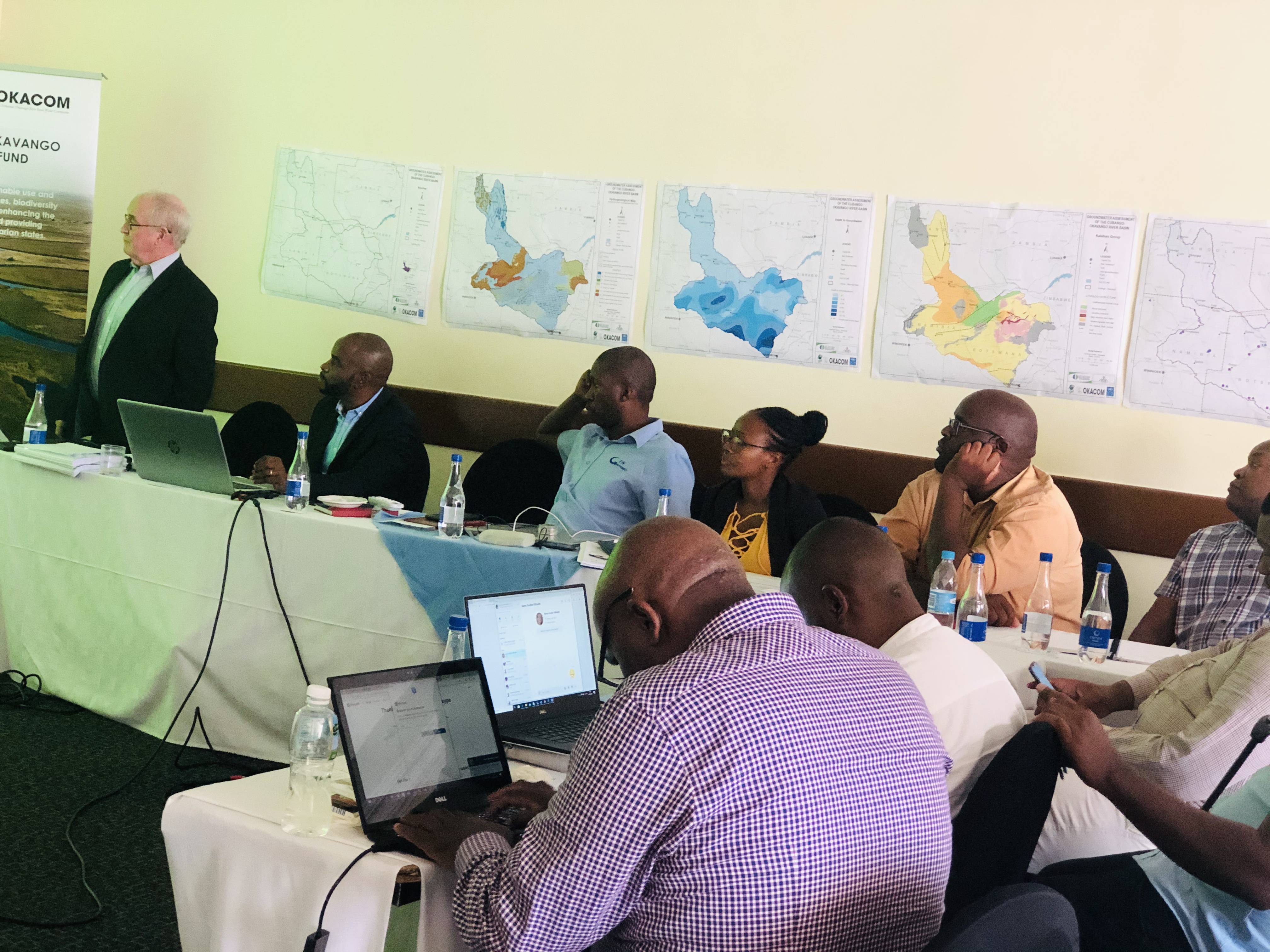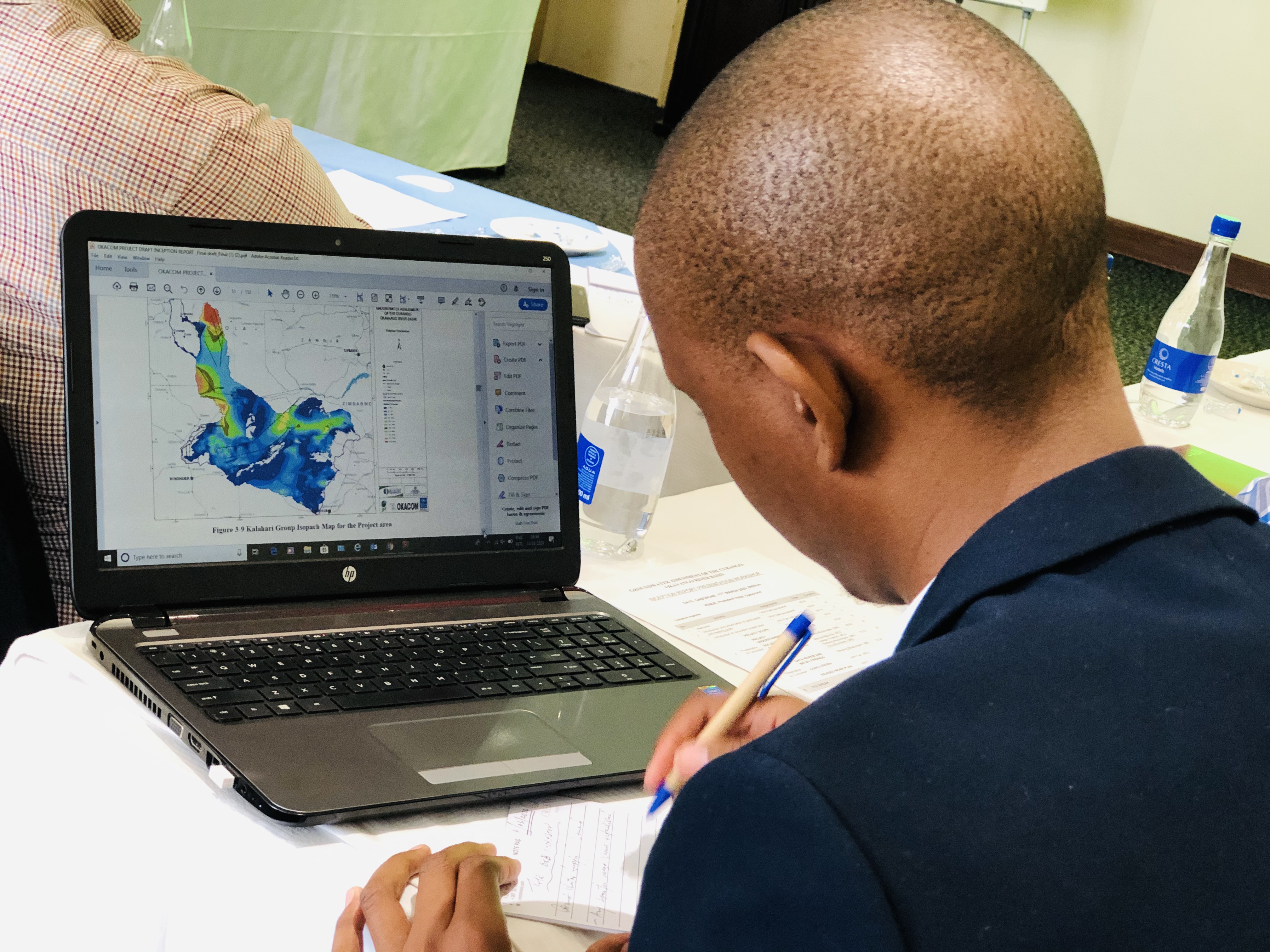- Home
- About Us
- Background
- Mandate
- Cubango Okavango River Basin
- Governance
- Strategy and Approach
- Member States
- Our Work
- Partners
- Climate Resilient Infrastructure Development Facility (CRIDF)
- European Union (EU)
- Southern African Development Community (SADC)
- Swedish International Development Cooperation Agency (SIDA)
- The World Bank (WB)
- United Nations Development Programme (UNDP)
- United States Agency For International Development (USAID)
- Resources
- News and Events
- Opportunities
- Contact Us
- FAQ's
- Connect With Us
- i
- t
- f

Groundwater Assessment for the CORB
Wednesday, March 11, 2020


An Inception Workshop for the Groundwater Assessment of the Cubango-Okavango River Basin (CORB) was held on 11 March 2020 in Gaborone, Botswana and attended by OKACOM Secretariat, Water Resources Technical Committee (WRTC) members, USAID Resilient Waters Programme.
As part of the UNDP-GEF support to the Strategic Action Programme (SAP) Implementation, OKACOM is facilitating the development of Basin wide Environmental Monitoring Framework for the CORB which will subsequently guide and inform monitoring projects and programmes within Basin. The SAP-related monitoring activities will include Groundwater Monitoring as OKACOM recognises the need for transboundary management of groundwater resources and the linkages between surface water and groundwater. Carrying out a groundwater assessment is the first step and will enable the collation of critical information that will eventually guide the development of a CORB Groundwater Resources Management Plan. The same data will also be crucial in informing the development of a basin-wide groundwater monitoring network.
Speaking at the workshop, the OKACOM Executive Secretary, Phera Ramoeli noted that “Our knowledge on the groundwater resources of the Basin is limited and this study will inform the development of a ground water monitoring framework programme to enable us to advise member states on the shared benefits of this important resource.” Another key objective of the assessment is to determine the groundwater resources status in terms of quality and quantity, focusing on the current and potential groundwater utilisation in the CORB, to further inform the basin-wide conjunctive water utilization.
The project will be implemented with active quality assurance participation provided by the OKACOM Water Resources Technical Committee (WRTC) as well as OKACOM partner institutions, such as the SADC Groundwater Management Institute (SADCGMI), UNESCO International Groundwater Resources Assessment Centre (IGRAC) and International Water Management Institute (IWMI), USAID Resilient Waters Program (RWP) and academic institutions namely University of Cape Town (UCT), the University of Botswana and Agostino Neto University.
Currently, national socio-economic development policies target the rural communities living within the Basin and this places added pressure on the water resources provided by the river system. In countries such as Botswana and Namibia only a part of the Basin’s population is directly dependent on surface water resources, while other parts rely on groundwater resources. The demand for groundwater is predicted to increase due to the increasing Basin population, activities such as agricultural production, mining and the development of water supply schemes. The workshop reviewed a presentation of the type of data to be collected, the sourcing and current groundwater resources status of all three member states, with the Technical Reference Group offering input into the Inception Report. The assessment is scheduled to take place over a 12 months period and will be finalised by December 2020.
Thematic Areas & Activities
News
subscribe for news notification by email
Photo Credit: Kostatin Luchansky, National Geographic, Okavango Wilderness Project.
© [current-date:custom:Y] [site:name]

